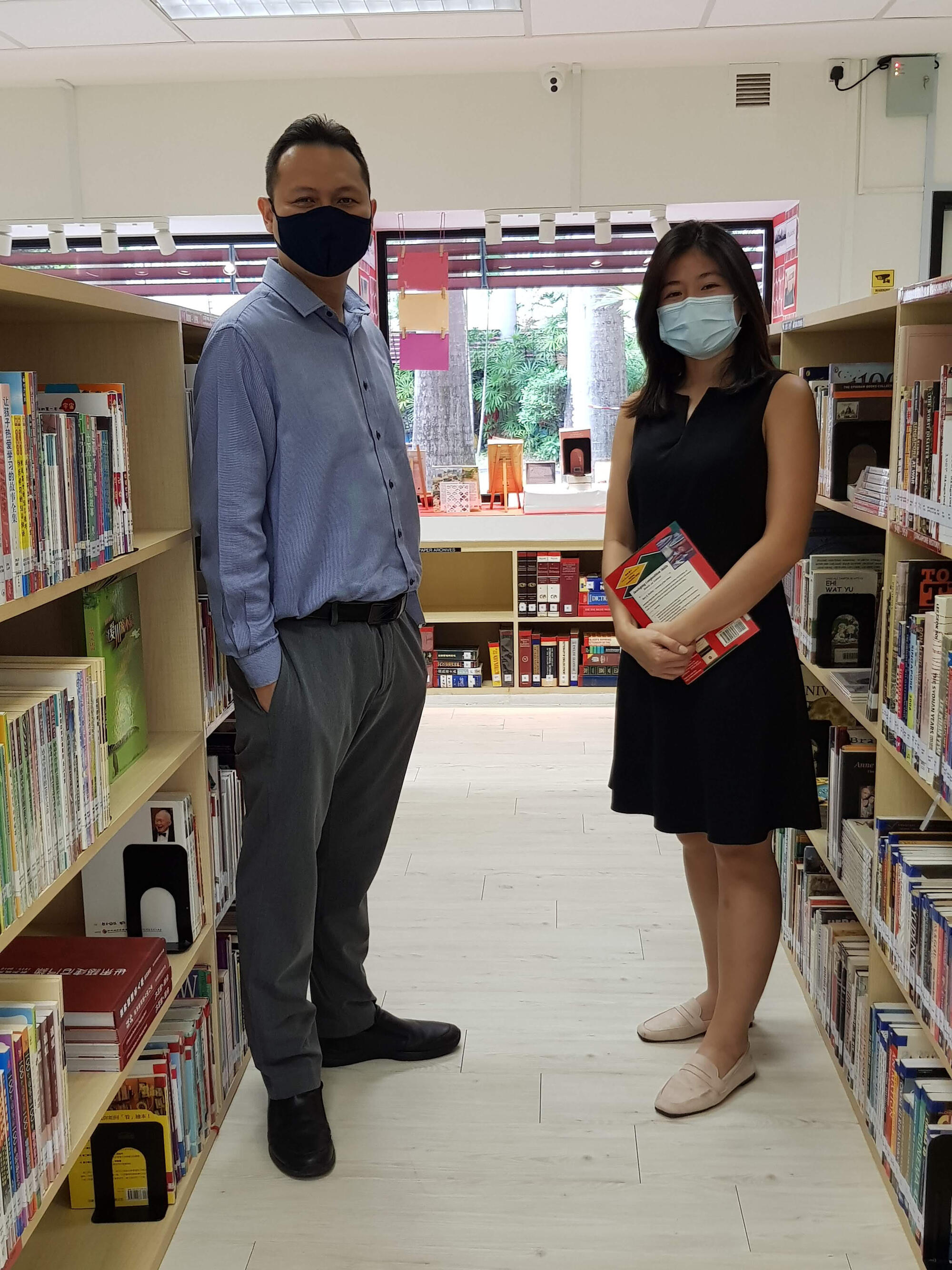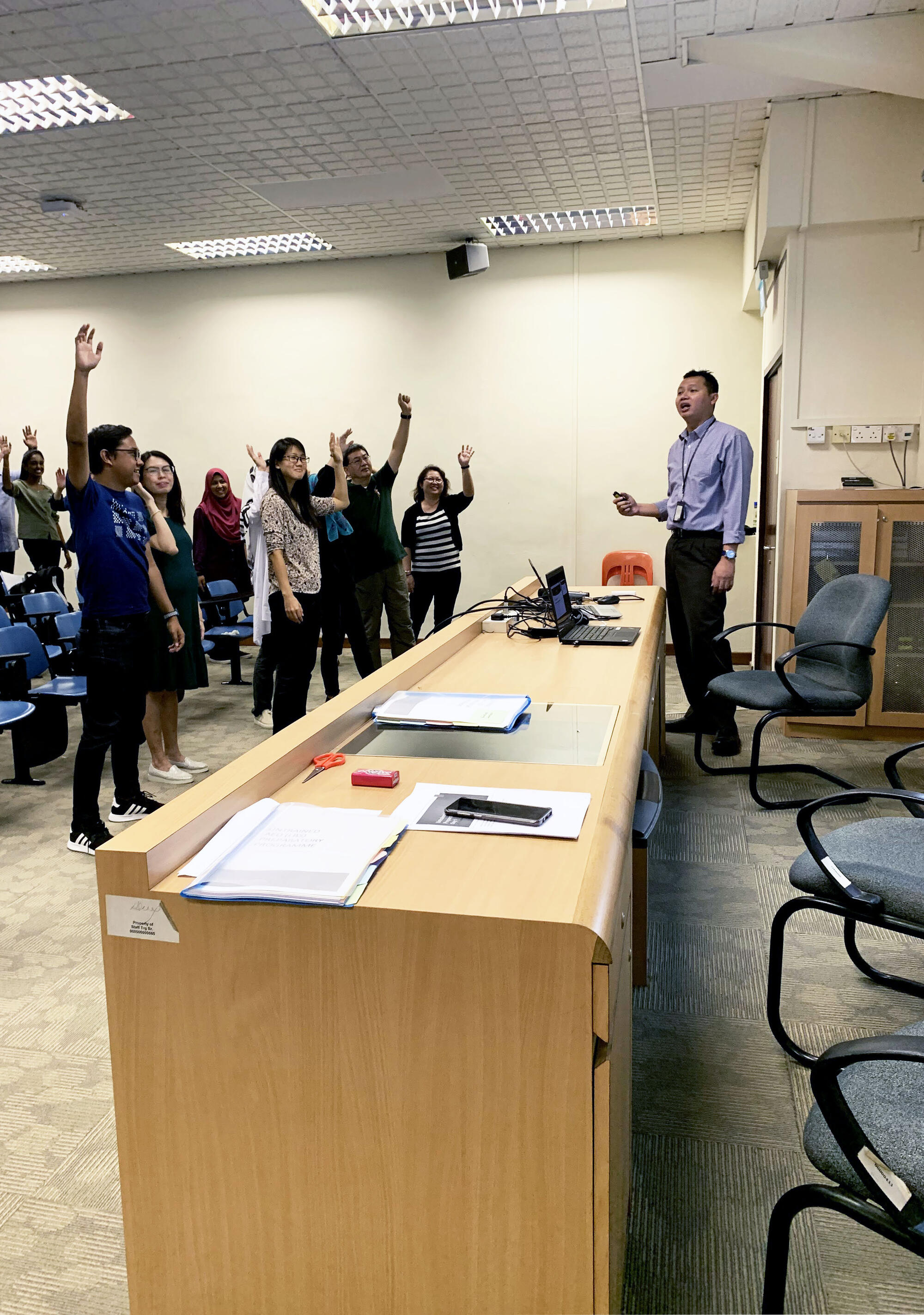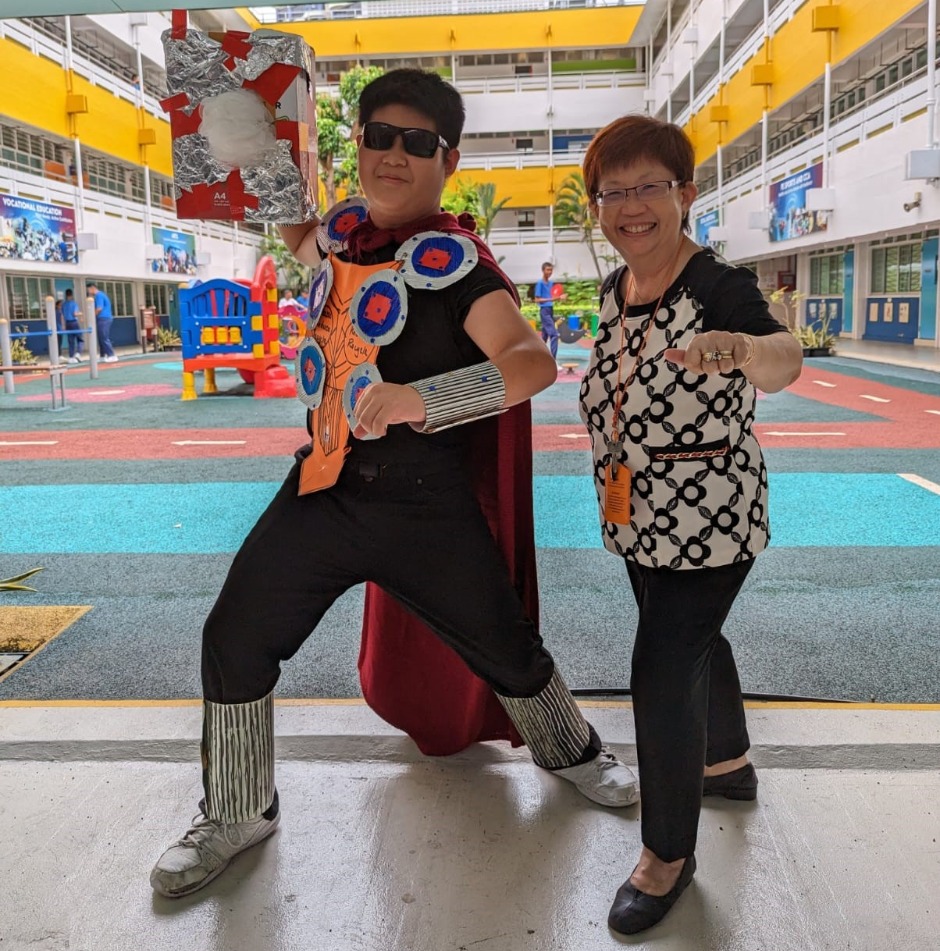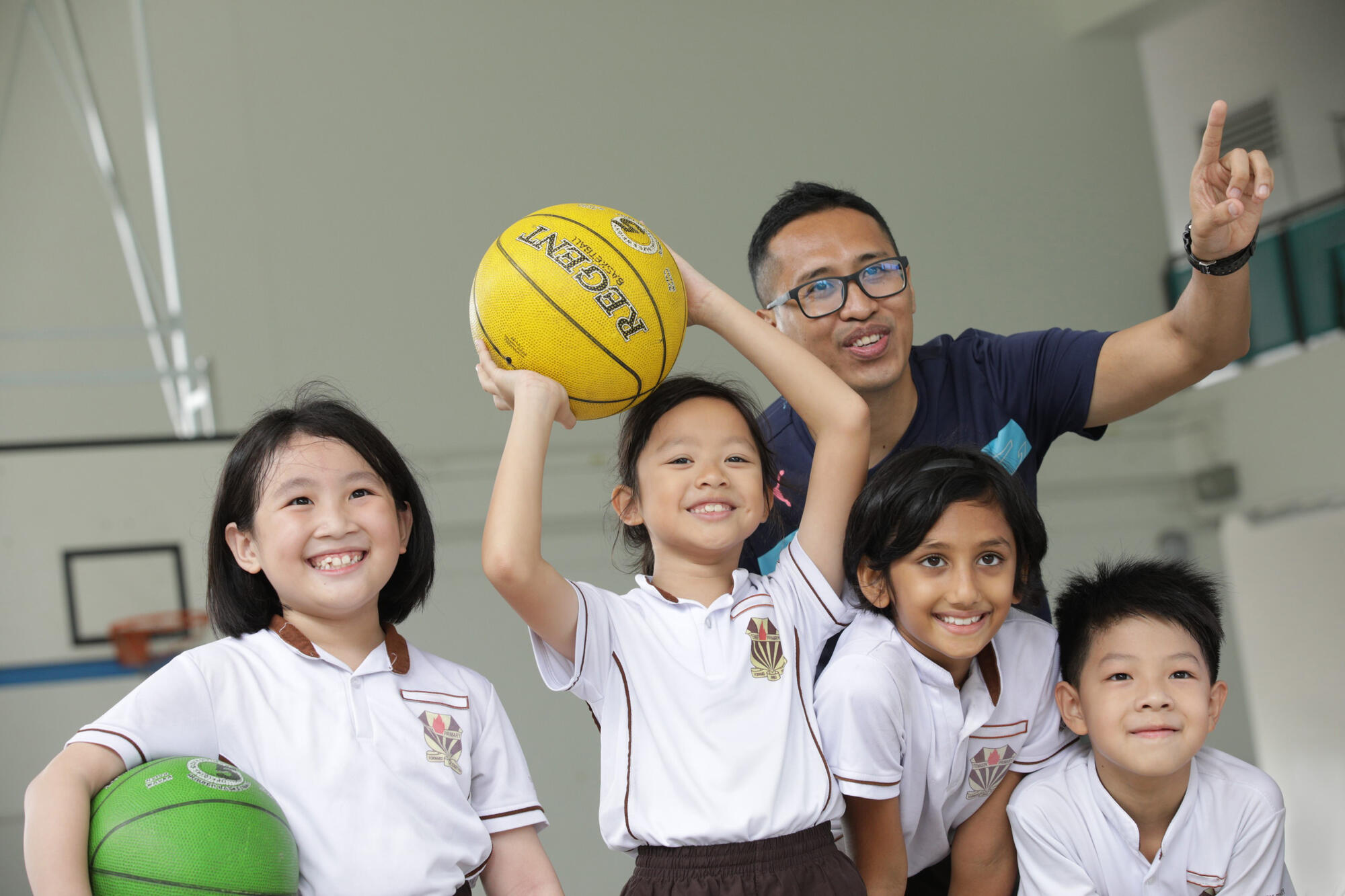Allied Educators Leading the Way in SEN Support
30 Oct 2020
What is the role of an Allied Educator (Learning and Behavioural Support) [AED(LBS)]? How has their support for students with Special Educational Needs (SEN) in mainstream schools changed over the years? Hear from Ms Amanda Tan, a newly trained AED(LBS) from Dunman Secondary School and her mentor, Mr Muhammad Suhairi, a Lead AED(LBS) from MOE HQ.

Ms Amanda Tan had always wanted a career working with the special needs community and she was able to fulfil that desire by being an Allied Educator (Learning and Behavioural Support) – AED(LBS) for short
After completing her Diploma in Special Education in NIE, Amanda was deployed to Dunman Secondary School in 2018. There, she has been working closely with students with Special Educational Needs (SEN) and their teachers to set learning and behavioural goals, and apply strategies towards those goals. For example, some students with SEN require more explicit instruction in planning their study routines. Amanda would teach these students, and through classroom observations and feedback from their teachers, provide the necessary guidance to her students to evaluate the effectiveness of their own study routines and make further improvements.
Building new skills, reinforcing lessons
AEDs(LBS) are specially trained personnel deployed in schools to support students with learning and behavioural needs. With a strong emphasis on early intervention, each primary school is resourced with at least two AEDs(LBS), and almost all secondary schools one. Like Amanda, the AEDs (LBS) are trained to teach specific skills such as reading, spelling, and developing an understanding of social cues. Besides working directly with the students, they also collaborate with teachers to implement classroom-based strategies.
“Throughout the day, I carry out intervention sessions with students either to build new skills or reinforce what was taught earlier. During recess, my intervention room is open for students to come by for a chat or to use the space to complete assignments or have their “me-time”.
“What is most fulfilling about being an AED(LBS) in Dunman Secondary is the autonomy to customize programmes for my students. One example is the Dunman Sec Peer Support Programme,” says Amanda. “As part of this programme, students with autism worked with their peers to discover more about themselves, as well as learn useful communication skills like active listening, body language and respecting boundaries. It enabled them to support one another in their acquisition of new skills, and find comfort that they were not alone facing challenges in school.”
Amanda also collaborates with the school’s Education and Career Guidance (ECG) counsellor, Miss Pauline Low, on providing guidance and advice to students with SEN on post-secondary educational options. Through a series of workshops designed by Amanda and Pauline on job interview strategies and research on career options, the students were able to identify their own strengths and weaknesses, as well as pick up skills needed to plan their career goals.
Learning from an experienced mentor
All newly trained AEDs(LBS) attend a Mentoring Programme in their first year of service to develop the competence and confidence to support students with SEN. They are guided by mentors, so parents can rest assured that their children are in good hands. Being new to her role in 2018, Amanda could turn to her mentor, Mr Muhammad Suhairi, a Senior AED(LBS), whenever she encountered more complex issues in her work.
She says, “He was able to offer us mentees different perspectives on the problems we were facing due to his knowledge and wealth of experience, and he always demonstrated creativity in his problem-solving skills.”

In her first year of service, Amanda was mentored by Mr Muhammad Suhairi, a Lead AED(LBS) from MOE HQ.
Suhairi was among the first batch of AEDs(LBS) recruited and trained by MOE 15 years ago.
“When I first joined the profession in 2005, my focus was on understanding students’ needs and helping them overcome the challenges faced, so that they could have an enriching school experience. Back then, not many people were familiar with SEN and although teachers and parents tried their best, they did not quite know how to provide support effectively.
“There was a need for me to create awareness among different stakeholders on what SEN was, and how the students could be supported. It was an uphill task as changing mindsets and attitudes takes time, and there was only so much I could do on my own.”

Suhairi, conducting training for a group of officers to prepare them for their experience as an AED(LBS) in schools. (Photo was taken before COVID-19.)
Awareness of SEN and understanding of SEN support has increased over the years. In addition to the AED(LBS), schools have established a whole-school approach in supporting students with SEN – and tapping on school personnel with different areas of expertise, such as Year Heads, Senior Teachers, teachers trained in supporting students with special educational needs (TSNs), and ECG counsellors. They play different but complementary roles in a sustainable system of support.
Suhairi says, “Over the years, my role in school had shifted from trying to support the student individually, to working with school staff, parents and peers, and levelling up their knowledge and skills. Together, we are building an inclusive school culture in each school. When we work as a collaborative team to support our students, we can go far for them.”
Amanda agrees. She says, “My colleagues in school are extremely supportive of students with SEN. We work closely together with parents to guide our students to achieve their desired goals and pathways in life.


.jpg)
.jpg)

